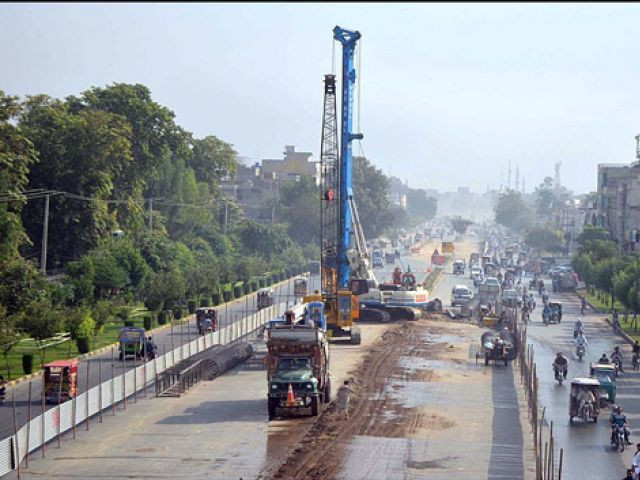Expert opinion: Orange Line be allowed after ruling out damage to historic sites, says SCBA president
Barrister Ali Zafar says the court may intervene in policy matters when the policies are in violation of a law

PHOTO: APP
In a written statement submitted in Lahore High Court, he said governments could construct and develop infrastructure to meet the needs of the people. He said the court could not stop the government from planning, expansion and development of physical infrastructure. However, he said, the court might intervene in policy matters when the policy was in violation of a law or the Constitution. Development projects could not be allowed if they violated fundamental rights of the people or caused harm to desirable features of an urban area.
Therefore, Zafar said, the court needed to examine if the construction of the Orange Line Metro Train would violate any laws or fundamental rights of the people or harm the basic fabric of the city.
He submitted the remarks in his capacity as amicus curiae in the court of Justice Abid Aziz Sheikh ad Justice Shahid Karim.
“An underground train service had been proposed in the original plan for the project. An overhead track is suitable for cities like Dubai where there is no danger of harm to the basic structure of the city,” he said. Passenger trains in several cities of the United Kingdom had been running underground for around 150 years, he said. Similar examples could be found in cities like Delhi, Rome and Paris.
Zafar held that several laws dealt with infrastructure projects like the Orange Line Metro Train. The court was empowered to stop the government from undertaking the project if it was found to be in violation of any of these laws, he said.
“The government is duty bound to protect antiquities under the Antiquities Act of 1975. The law specifies that monuments as well as objects and sites of historical interest should be protected from damage,” he said.
He said the law specified that safeguards should be ensured to prevent ‘breakage, damage, defacing or alteration’ of monuments. “It allows the government to acquire the land in question if needed,” he said.
“The law does not allow any construction activity within an area of 200 feet of a protected monument or historical site,” he said.
Zafar submitted that construction of Orange Line Metro Train should not be allowed if it was determined that it could cause damage to a historical site along the route. However, he said that no permission was needed if the activity was not likely to cause harm to such a site.
He said services of experts could be engaged to determine whether or not construction work would endanger historical sites. The government should be asked to submit in court reports prepared by experts engaged for the purpose if it had already done so, he said.
Published in The Express Tribune, January 27th, 2016.



















COMMENTS
Comments are moderated and generally will be posted if they are on-topic and not abusive.
For more information, please see our Comments FAQ